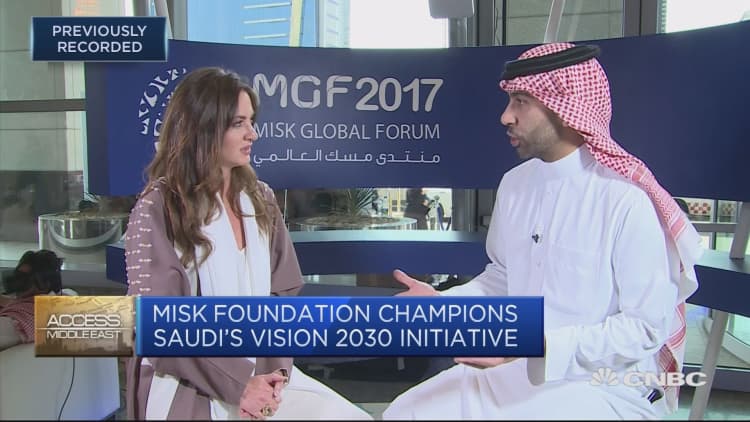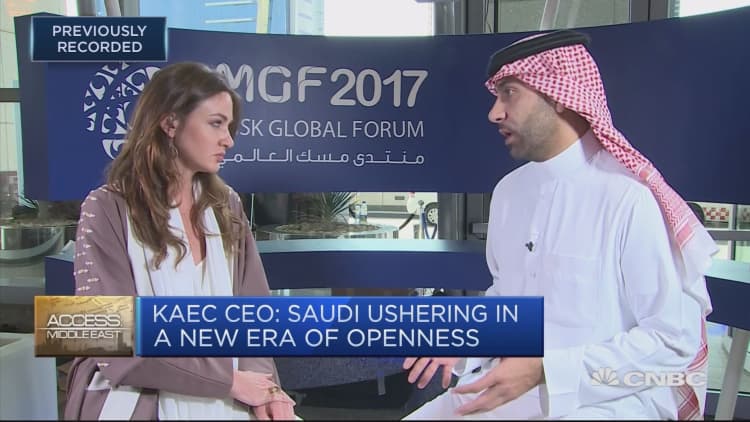
Saudi Arabia has introduced trading licenses that will allow foreign entrepreneurs to set up a business in the Kingdom for the first time.
The initiative, announced Wednesday by several Saudi regulators, will enable select businesses to establish themselves in the King Abdullah Economic City (KAEC). The KAEC is the world's first publicly listed city and was established by the late King Abdullah bin Abdulaziz Al Saud in 2005.
"We believe the future of the (Saudi) economy is the knowledge economy, so we can't do that without entrepreneurs from all over the world," KAEC CEO Fahd Al-Rasheed told CNBC on Wednesday.
More than 11 licenses have been handed out to entrepreneurs in different sectors, Al-Rasheed said.
He added: "We've offered entrepreneurs incentives to come into Saudi Arabia so it doesn't only require regulatory approvals but also access to market — we're giving them free office space, free education for their children, anything that they ask for."
Al-Rasheed said the project aims to take advantage of technological advancements like driverless cars, a tech currently led by U.S. firms like Tesla and Google's Waymo.

Saudi Arabia 'needs new cities'
Inspired by the country's Vision 2030 reform package, the licensing initiative seeks to reduce the private sector's over-reliance on oil revenues. Saudi Arabia's oil and gas sector accounts for 85 percent of its export earnings and around 50 percent of gross domestic product, according to the Organization of the Petroleum Exporting Countries (OPEC).
Saudi regulators said that entrepreneurs who receive a license will benefit from the megacity's simplified process of setting up and running a business, as well as discounts and other incentives to stimulate growth.
KAEC's Al-Rasheed said that, with an ever-expanding Saudi population, the country would need to create new megacities to keep up.
"The Kingdom needs new cities. We are at 30 million population today, growing to 40 million in the next 13 years. KAEC is only going to handle a million by then, so you're going to need 10 more KAECs."



